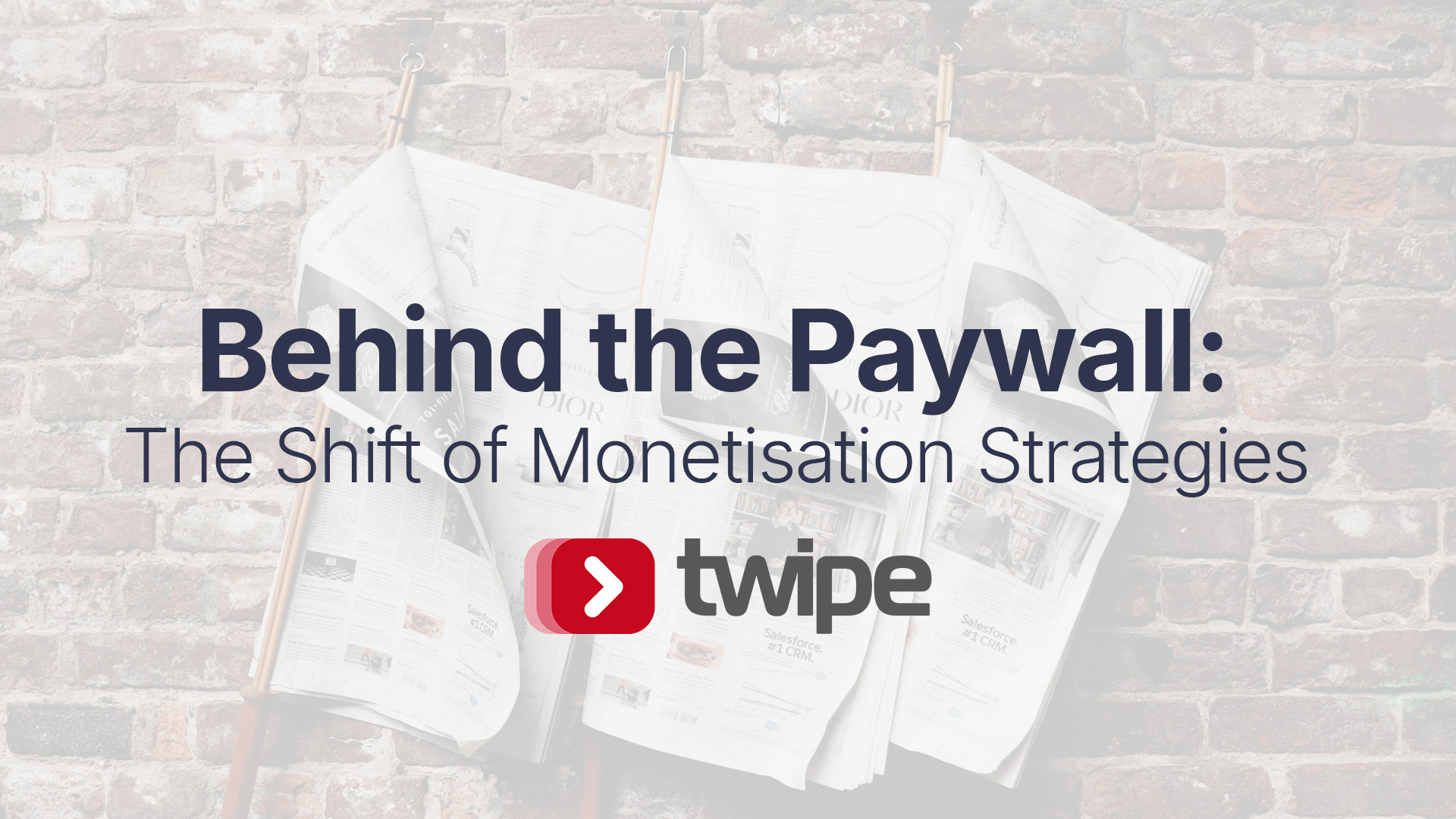Blog
7 news media startups and companies to watch in 2024
How can news media startups develop sustainable business models? In a context where even well-funded companies such as Artifact and the Messenger have faced difficulties and were forced to close, many news companies are asking themselves this question. While some businesses, such as Semafor, are seemingly on the path to sustainability, the challenges of sustaining a successful news enterprise remain, especially in an economic reality where venture capital is getting scarcer.
Against this backdrop, learning from those who managed to reach financial sustainability is crucial. Here is a selection of seven news media startups that have been experimenting with new ways to achieve financial sustainability in journalism with innovative concepts. However, not all of them have figured out a sustainable path to profitability quite yet.
1. The News Movement (2020)
The News Movement’s (TMN) purpose is to deliver trusted information to younger audiences in ways that appeal to them (e.g., video, multimedia content, more concise paragraphs) and on subjects that are significant to them (e.g., the environment, equality, and entertainment). The organisation is growing, having recently expanded into the US and UK.
TNM’s business model is based on their expertise in communicating to younger audiences. For instance, it does consultancy for established media brands (The Associated Press, National World, Amazon) by creating content for their socials and providing advice on their social media strategy. TNM also run different events and help other brands run unique events. Therefore, TNM positions itself as a versatile partner for brands, media companies, and organisations looking to connect with Gen Z audiences.
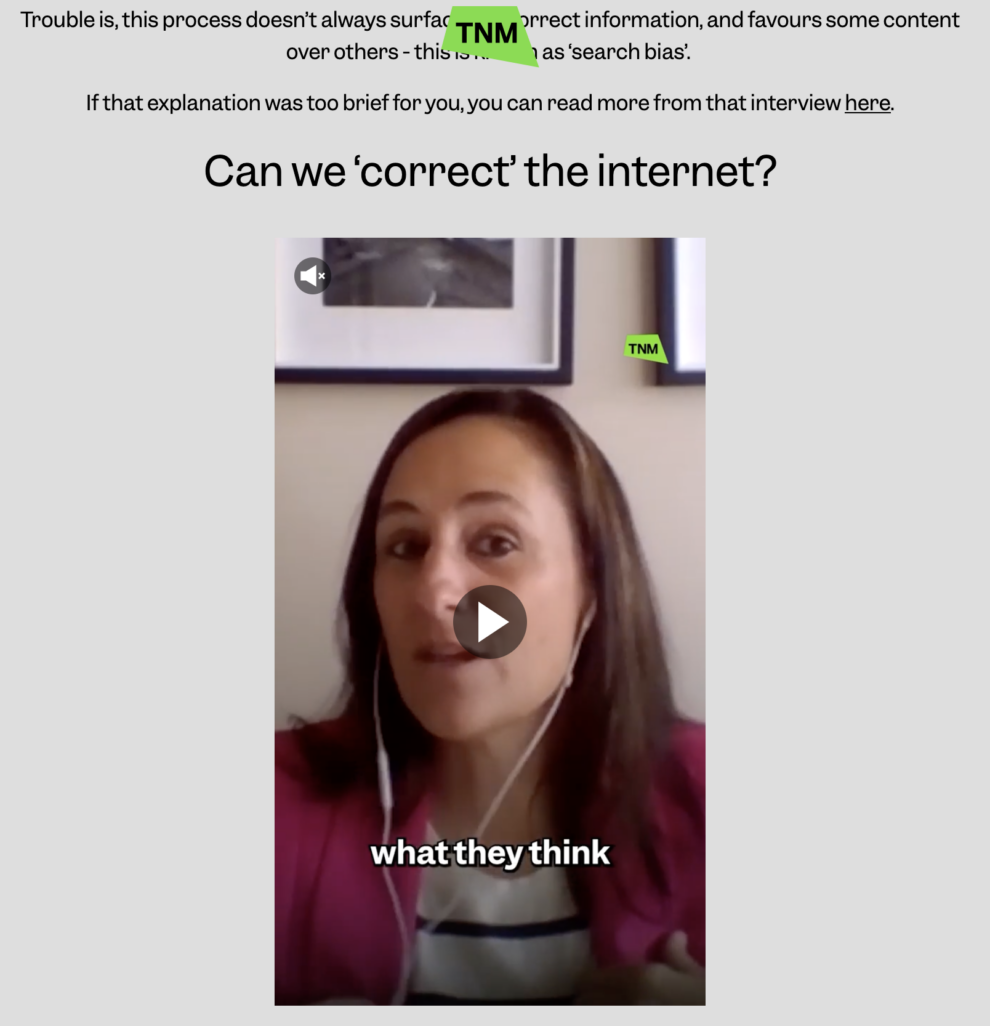
2. 19th News (2020)
The 19th News, a journalism startup focusing on gender, politics, and policy, stands as an independent, nonprofit newsroom. It aims to empower women, LGBTQ+ people, and other underrepresented communities with information and resources. The 19th engages in-depth journalism to cover crucial issues affecting these communities, offering a platform for diverse voices and perspectives.
The 19th News generates revenue primarily through donations as a tax-exempt organisation. They rely on financial support from their community, including individual memberships and corporate support (with no editorial sway). Individuals who donate are given access to exclusive content, from AMAs with journalists to a monthly donor-only newsletter. Startups like The 19th News are not the only media organisations that rely on this revenue stream. Large publishers like The Guardian or La Presse are also based on donations or are not-for-profit businesses.
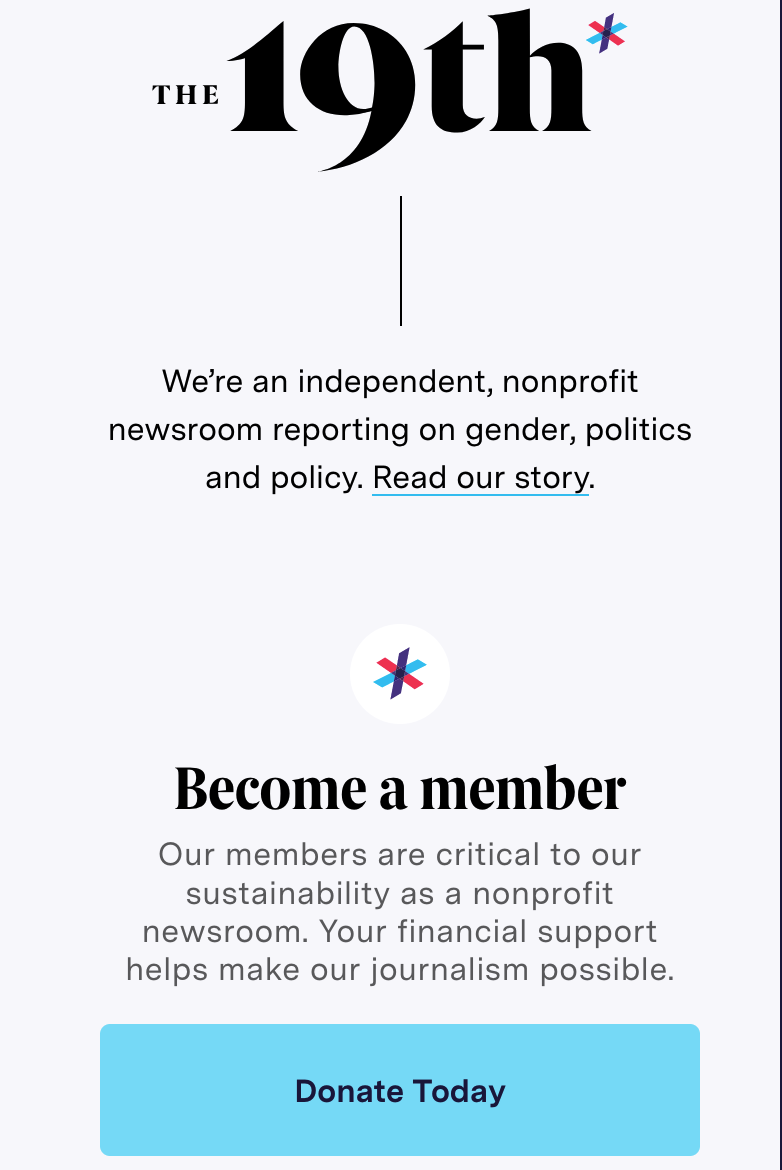
3. Tortoise Media (2018)
Despite several funding rounds for over $10 million, Tortoise Media struggles to reach financial sustainability with its total losses since 2018 amounting to over $15 million. The premise behind Tortoise Media is their “slow news” approach, aiming to address the overwhelming flood of information available online. It focuses on an in-depth exploration of what drives the news rather than breaking news coverage, striving to offer a fuller picture of the forces shaping our future. Tortoise Media invites members to participate in its open journalism model, distinguishing itself by prioritising responsibility and sustainability.
The startup is tapping into different monetization strategies and revenue streams, striving to achieve financial sustainability. Tortoise Media’s financial sustainability hinges on its subscription base. Members of the Tortoise can gain access to exclusive newsletters, member-only events, and discounts on various offerings. It also has an online shop selling its merchandise and various guest books. The company reports growth in audio revenue, membership subscriptions, and business forums. In addition, the business is still investing and has increased their headcount to over 70.
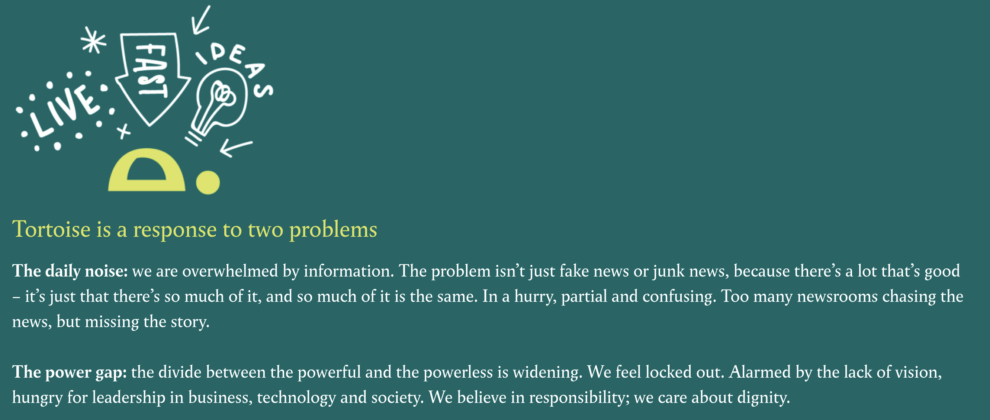
4. TheFlipSide (2017)
The Flip Side (TFS), a key player among news media startups, aims to bridge the gap between liberals and conservatives in the US by providing concise summaries of political analysis from across the political spectrum. It seeks to become a news source for a broad audience including liberals, moderates, independents, conservatives, and the apolitical — by offering a balanced perspective on current events.
The Flip Side is financially sustainable through premium memberships and sponsored ads. Their approach includes offering a premium membership that provides subscribers with ad-free daily newsletters, a weekly review, in-depth analyses every other Sunday, and full access to the TFS Forum for more engaged discussions.
With the launch of TFS Forum, The Flip Side aims to deepen subscriber engagement and open new avenues for revenue. The forum is designed to foster thoughtful and nuanced discussions, rewarding thoughtfulness and bipartisanship through a custom ranking algorithm and a reputation system. This move towards a more engaged community model is part of their broader strategy to serve as a news platform and facilitate meaningful conversations across the political spectrum.
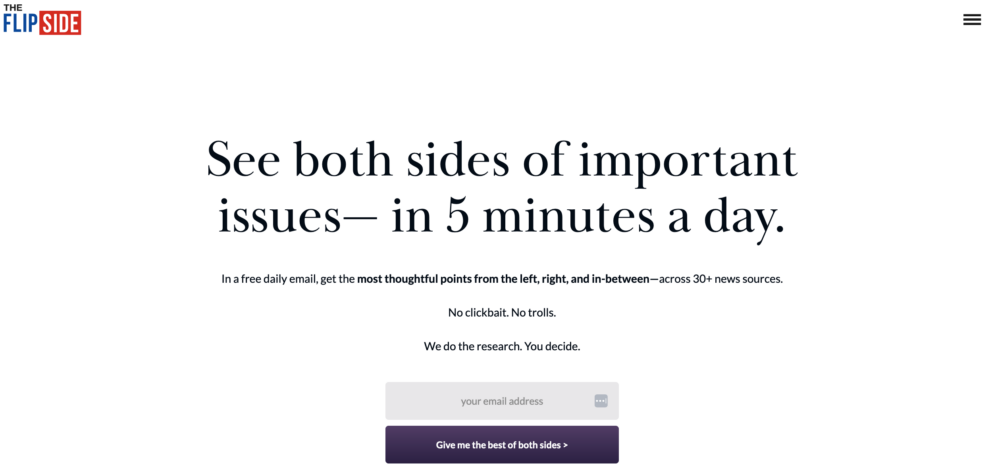
5. Puck News (2021)
Puck is a new media company at the intersection of Wall Street, Washington, Silicon Valley, and Hollywood, focused on building a business model aligned with the creator economy. Its journalists are also owners of the company. Puck was founded in 2021, and it aims to create a brand focused on the inside conversation and the story behind the story. Puck’s model encourages readers to interact directly with journalists, offering a fresh approach to producing and consuming news. The company brings together talented journalists with media executives who understand the new distribution streams and the power of the creator economy.
Puck News achieves financial sustainability through a combination of subscription revenues, advertising, and significant funding rounds. As of November 2022, Puck had managed to attract 200,000 email subscribers, 20,000 of whom were paying for all-access reporting at rates of $12.99 monthly or $100 annually. This subscription-based model forms the core of their revenue, valuing the company at approximately $70 million following its latest funding round.
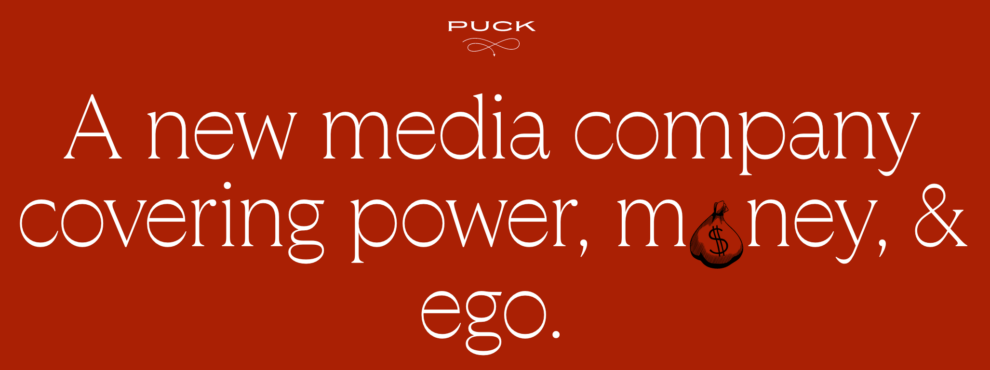
6. RideHome (2019)
Ride Home Media specialises in producing short-form podcasts that summarise the day’s news in various subject areas, serving as a “TLDR as a Service” for listeners. Its value proposition lies in delivering concise, digestible content for busy individuals who want to stay informed but may not have the time to consume full-length news articles or broadcasts. This model offers a unique blend of convenience, brevity, and depth, catering to audiences interested in technology, politics, celebrity news, and other verticals, making it easier to stay updated on the go.
Ride Home Media raised $1 million in seed funding from Tiny Capital. Co-founder Brian McCullough highlighted that a daily podcast can be financially viable with a modest audience size, indicating that their revenue model may rely on both funding and the economics of podcast advertising with a focus on niche audiences.

7. RocaNews (2020)
RocaNews, launched in August 2020 by co-founders Max Towey, Max Frost, and Billy Carney, initially started as an Instagram page. Within its first year, it achieved 1 million Instagram followers and boasts over 200,000 newsletter subscribers. RocaNews differentiates itself from other news startups by focusing on delivering factual and non-partisan news and employing the use of positive journalism. RocaNews emphasises building a community around engaging and insightful content and through their gamified news app, without pushing political narratives.
RocaNews introduced an iOS app with news, quizzes and a gamified experience to increase engagement. The app has seen about 100,000 downloads and has around 40,000 monthly active users. RocaNews has ventured into subscriptions for its app and newsletter, offering tiers ranging from $2.99 to $7.99 per month. The company, which has raised $5.3 million in funding, projects $350,000 in 2023 revenue but is not yet profitable.
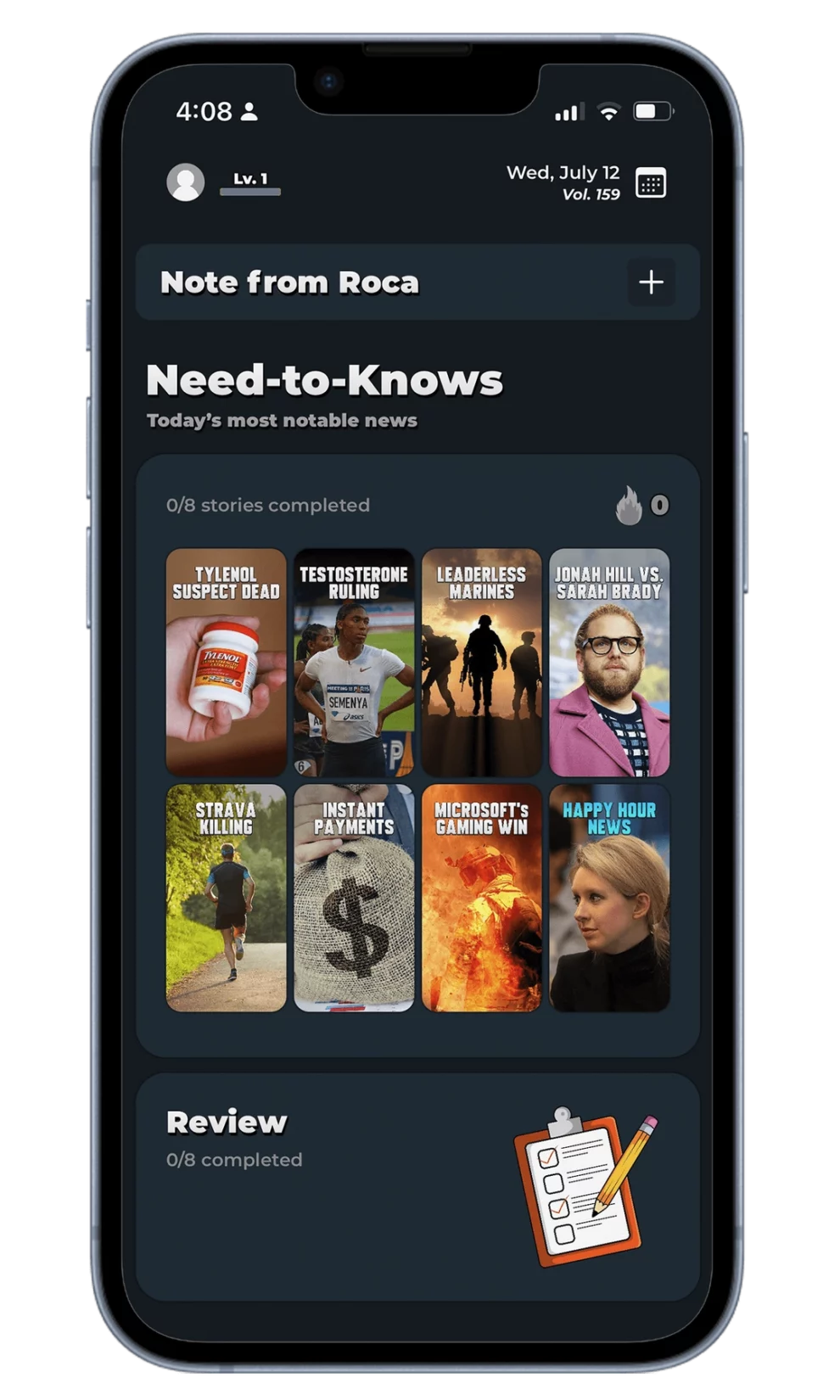
Conclusion
These top seven news media startups highlighted in this article adopt practical and distinct strategies for achieving financial sustainability. Their success lies in specific approaches such as targeting niche markets, leveraging cutting-edge technology, and innovating within their revenue models.
These examples offer valuable lessons for media companies seeking to adapt and thrive amidst digital transformation. The insights provided by these startups are particularly relevant for crafting strategies that effectively engage audiences and explore new business opportunities.
Other Blog Posts

Stay on top of the game
Subscribe to Twipe’s weekly newsletter to receive industry insights, case studies, and event invitations.
"(Required)" indicates required fields

